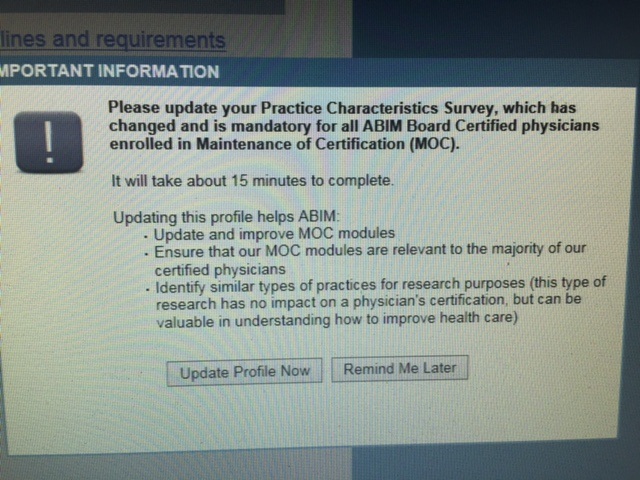"I think that commercialization of care is a big mistake. Health care is a sacred mission. It is a moral enterprise and a scientific enterprise but not fundamentally a commercial one. We are not selling a product. We don’t have a consumer who understands everything and makes rational choices — and I include myself here. Doctors and nurses are stewards of something precious. Their work is a kind of vocation rather than simply a job; commercial values don’t really capture what they do for patients and for society as a whole.
Systems awareness and systems design are important for health professionals but are not enough. They are enabling mechanisms only. It is the ethical dimension of individuals that is essential to a system’s success. Ultimately, the secret of quality is love. You have to love your patient, you have to love your profession, you have to love your God. If you have love, you can then work backward to monitor and improve the system. Commercialism should not be a principal force in the system. That people should make money by investing in health care without actually being providers of health care seems somewhat perverse, like a kind of racketeering."
- Avedis Donabedian
Systems awareness and systems design are important for health professionals but are not enough. They are enabling mechanisms only. It is the ethical dimension of individuals that is essential to a system’s success. Ultimately, the secret of quality is love. You have to love your patient, you have to love your profession, you have to love your God. If you have love, you can then work backward to monitor and improve the system. Commercialism should not be a principal force in the system. That people should make money by investing in health care without actually being providers of health care seems somewhat perverse, like a kind of racketeering."
 |
| Don Draper in the finale of Mad Men |
 | ||
| Robert Wachter, MD, as "Elton John" SHM Meeting 2014 Mandalay Bay Casino, Las Vegas and Modern Healthcare's Most Influential Physician Executive and Leader 2015 (Full video of the performance here) |
It was nearly four short years ago that Dr. Wachter wrote that we needed the ABIM's Maintenance of Certification program "more than ever." Perhaps the lucrative Digital Party in medicine was just too big for the ABIM leadership and the members of its Foundation to ignore. At the time, those in Wachter's World held the view that assuring physician quality meant physicians not only had to be re-certified every ten years but soon had to participate in some form of the ABIM's measurement program every two years for the sake of "external stakeholders and a troubled public." As a result, physicians were required to perform unproven practice improvement exercises, perform un-monitored research on themselves, and become glorified data entry personnel to continuously "maintain" their "board certification" or risk losing their right to practice. All of these exercises were subsequently revealed to be primarily for the medical industrial complex's extraordinary monetary gain and undisclosed political activities. Such "love," indeed.
The expanded ABIM board certification requirements after 1990 have served as the goose that laid the Golden Egg for condo purchases, chauffeur-driven Mercedes rides, spousal travel fees, undisclosed corporate consulting arrangements, corporate mergers, political influence and the program's continuing transition to Assessment2020 - much of these occurring while Dr. Wachter served as a Director or Chairman of the ABIM. For the ABIM and its parent organization, the American Board of Medical Specialties (ABMS), success in the digital medical world still appears to mean the doctor-patient relationship has to be owned, bartered, and commoditized to serve their bottom line without really understanding all that this entails to the doctor, their patients, and the credibility of our profession.
If Bob Wachter, MD is a true physician advocate and is now having a genuine conversion experience, he would be speaking out about these abuses of physicians' trust. In fact, as the "Most Influential Physician Executive and Leader 2015," he would be leading this charge. Or perhaps I am missing something.
Meanwhile, despite all of the fast-paced changes in health care under way, the same rubber soles continue to speed down linoleum hallways, call lights blink, keyboards pound, family meetings are held with tears shed, young physicians wonder how they'll pay their educational debt, productivity quotas expand, administrative meetings multiply, patients grow furious about their rising premiums, co-pays and deductibles, physician autonomy and morale withers, and patient access to their doctor shrinks.
Fortunately, rather than standing idly by, practicing doctors are mobilizing. They are realizing that the bloated and costly bureaucratic arm of our profession has lost its way and are working to restore its integrity. Practicing physicians are finding they have a voice and are not powerless against these corporate entities that unjustifiably risk compromising their ability do their job. With these efforts, members of Wachter's World are beginning to realize they're at risk of losing their golden goose:
Last week, Andy Slavitt, Medicare’s acting administrator, announced the end of a program that tied Medicare payments to a long list of measures related to the use of electronic health records. “We have to get the hearts and minds of physicians back,” said Mr. Slavitt. “I think we’ve lost them.”Despite these concerns of a few of our bureaucratic medical policy elite, practicing physicians remain little more than an account to be landed, a work to be optimized. To them, practicing physicians represent an opportunity to invest in new corporate ventures like Health2047, no doubt for the "love" that's involved. The respectful partnership that practicing physicians would like to have would not include the many corrupt financial practices and undisclosed conflicts of interest of the AMA and the ABMS specialty board credentialing system, their collaborating subspecialty societies, and numerous for-profit physician reporting businesses. They invoke ethics, morals, and "love" at their own risk.
In my career, I'm unaware of a broader breach of the trust of working physicians and of medical ethics by fellow colleagues than by those who secretly created the ABIM Foundation in 1989 and then funneled over $55 million of testing fees collected from working physicians while hiding its existence from physicians and the public until 1999. Yet many in our academic and bureaucratic physician community continue to support this testing agency that appears to have been expanded solely for political, corporate, and personal gain, and are indifferent to them using strongman tactics with physicians. What a perverted form of "love."
This system must change.
As health care moves forward in these uncertain times, a few of Donabedian's (other) words on quality assessment, uttered a month before his death, are prescient:
"It is the ethical dimension of individuals that is essential to a system’s success. ... Commercialism should not be a principal force in the system. That people should make money by investing in health care without actually being providers of health care seems somewhat perverse, like a kind of racketeering."Perverse indeed.
Right now there are residents who have no idea how they'll ever pay off their educational debt and millions of patients who can't afford insurance or their drugs. If the House of Medicine can't look inward at its own bloated, self-serving, bureaucratic ranks of the ACGME that are sucking the life from direct patient care, what does this say about the prognosis for US health care?
As Tina Turner once sang, "What's love got to do with it?"
-Wes
Reference: Donabedian A. A founder of quality assessment encounters a troubled system firsthand. Interview by Fitzhugh Mullan. Health Aff (Millwood). 2001 Jan-Feb;20(1):137-41.
